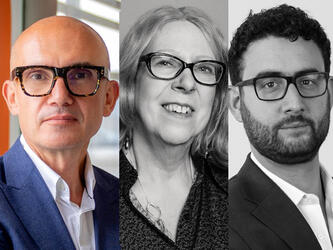Soul-searching, not box-ticking
In 2014, I took part in an online community of cancer patients. The patients in the study were from an ethnic minority background, or LGBT or aged 65 and over. I was not aware of it at the time, but that was because national survey evidence showed that cancer patients with these characteristics were less satisfied and had poorer outcomes in cancer services than other cancer patients. So, the aims of the project were to understand why this was the case and to learn how to improve services to reduce these inequalities.
I had taken part in many surveys before. In my mind, I knew what researchers wanted to hear: they would ask relatively standard questions about how I felt about my diagnosis, how it affected me, what changes had to be made in my everyday life and what I felt could have been better. I had made all of these assumptions before the project started.
I started answering questions in the online community by giving short, canned responses to deep questions. I wanted to contribute but I didn’t want to hurt more than I already did, so I stayed in the safe area. However, as the study progressed, the researchers – who, to me, began to feel more like virtual support – found a way to convince me that they wanted to hear my real experience. They truly wanted to use what I would share to make a difference. They also seemed to care about me, and the other participants, as individuals.
I answered some 50 questions, over eight weeks, about most aspects of my experience as a cancer patient: from fighting to be taken seriously by my GP to getting my devastating diagnosis; from struggling to navigate a complex health service to anxiety about how I would make ends meet financially; from undergoing treatment to learning to live with the long-term consequences.
The questions required soul-searching, not box-ticking. For instance, we were asked to write the diary entry we would have written on the day we received our diagnosis. We were also provided a virtual ‘bin’ and a ‘gratitude box’, which was liberating and uplifting. Another question required us to imagine having a leisurely cup of tea with our doctors and to rehearse what we would really want to tell or ask them. Where relevant, we were also invited to talk about preparing for the end of our life – an impossibly difficult topic. It might have been gruelling, but it felt only warm, supportive and important.
The answers poured out of me and the others. We had been gently coaxed into deeper and deeper disclosures. Those eight weeks went quickly and the format of the research – an online environment where we were given the time and space to answer questions when it was convenient – made taking part flexible, accessible and empowering.
At the end of the study, the researchers collated all our individual responses and send the data back to each one of us, for safekeeping. This act was to be something that would touch my life years later.
In 2017, I started working with the East of England Cancer Alliance as a member of the Patient Advisory Board. After some time, I realised that the one area that needed urgent attention was the patient experience. What patients valued and what clinicians felt patients valued and should value were vastly different.
It is not easy to bring the voice of patients to healthcare professionals. Not just because of some people’s inability to truly listen, but because it is hard to convey how my diagnosis has changed my life: any contemporary account lacked the emotional rawness, the confusion, the despair, the unmet needs as I experienced them four years ago.
This is where the file shared by the researchers proved so transformational. It provided vivid proof of what I had lived and felt. As I read through, I remembered every feeling, pain and struggle. I didn’t have to use my memory; it had been recorded. I was also blown away by the skill and the kindness of the researchers.
Through sharing that data, others could now see the value of empathy and understanding. They could observe what ‘listening’ felt like and the impact this has on patients. They could see that although I didn’t want to die back then, I did not have the tools to live the life I deserved. There was learning to be done and by capturing and sharing the snapshot of my life as they had, the researchers had impacted me in way I could never have imagined. Merely surviving was no longer enough.
The feedback received from those with whom I shared my answers to that online community has been astounding. It has helped people to understand the everyday reality of someone struggling through diagnosis, treatment and life post-trauma. The data was raw, real and very honest and, while I was somewhat on my guard initially, I am truly glad I let go of the defensiveness.
The research was funded by Macmillan Cancer Support, led by Dr Marie-Claude Gervais, co-founder and director at Versiti.

We hope you enjoyed this article.
Research Live is published by MRS.
The Market Research Society (MRS) exists to promote and protect the research sector, showcasing how research delivers impact for businesses and government.
Members of MRS enjoy many benefits including tailoured policy guidance, discounts on training and conferences, and access to member-only content.
For example, there's an archive of winning case studies from over a decade of MRS Awards.
Find out more about the benefits of joining MRS here.












2 Comments
Deborah
7 years ago
As one of the four researchers on this community I can honestly say it was one of the most rewarding projects I've worked on in my career as a researcher. I had the opportunity to talk directly with Shae during the project and I couldn't be more delighted to hear that things have moved on so positively for her. It really is the best outcome possible, and just goes to show how much value this type of approach can deliver. Wishing you all the health and happiness, Shae! Deborah.
Like Reply Report
Shae
7 years ago
Hi Deborah!! Thank you so much for your comments and for touching my life in such an important way. I appreciate your patience and the time you took with us all. I too wish you all the best :) xx
Like Reply Report